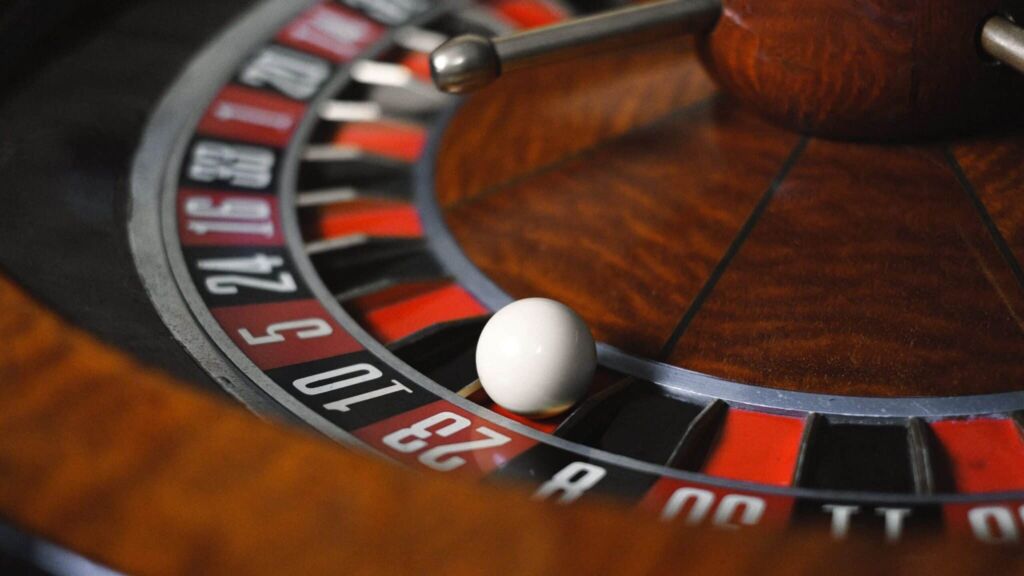Roulette stands out as a well-loved, classic casino game due to its straightforward yet action-packed nature. Players are captivated by the spinning ball that ultimately finds a home on one of the wheel's numbers. Knowing how bets work and the odds can significantly improve one's play, making it rewarding. This guide is designed to provide players of all levels with detailed insights into roulette, enhancing your experience and potential for winning.
The Basics of Roulette
The game of roulette involves a wheel with numbered slots, which range from 0 to 36 in European roulette and have an extra slot, 00, in American roulette. The main goal for participants is to determine where the ball will stop. Bets are placed on a table layout that represents various potential results, including individual numbers, groups of numbers, or overall color predictions.
European vs. American Roulette
The distinction between European and American roulette primarily lies in the count of zero-value slots. European versions feature just one zero slot, whereas American types include an additional slot marked as double zero. This additional slot increases the house advantage in American roulette, making European roulette a preferred choice among many enthusiasts.
- European Roulette: House edge of 2.7%
- American Roulette: House edge of 5.26%
Understanding these differences can play a critical role in selecting which style of roulette to engage in, specifically if your aim is to boost your chances of winning.
Types of Roulette Bets
Roulette presents diverse betting possibilities, broadly categorized into inside and outside bets. Every bet type provides a different probability of success and payout style, opening up a range of strategic options for players.
Inside Bets
Inside bets focus on particular numbers or groupings of numbers situated within the numbered pattern on the table. Although these bets offer more considerable payouts, they come with a reduced probability of occurring.
- Straight Up: Wagering on a single number, with a payout ratio of 35 to 1.
- Split Bet: Betting on a pair of neighboring numbers, yielding a payout of 17 to 1.
- Street Bet: Betting on a row of three consecutive numbers, offering a payout of 11 to 1.
- Corner Bet: Wagering on four numbers that meet to form a square, with a return of 8 to 1.
- Six Line Bet: Betting on two rows next to each other, each with three numbers, with a payout of 5 to 1.
Outside Bets
Outside bets involve bets on more extensive categories such as colors or number collections. They generally promise lower returns, yet have a greater likelihood of winning, making them especially favorite among novices.
- Red or Black: Predicting the color of the resulting number, with an even money payout of 1 to 1.
- Odd or Even: Anticipating if the result would be odd or even, providing a 1 to 1 payout.
- High or Low: Predicting if the final number will range from 1 to 18 or 19 to 36, with the payout being 1 to 1.
- Dozens: Betting on groups like 1-12, 13-24, or 25-36, resulting in a 2 to 1 payout.
- Columns: Wagering on one of the table's vertical number columns, also yielding a 2 to 1 payout.
Understanding Roulette Payouts
In roulette, there's a direct correlation between the odds of a bet and its associated payout. The less likely the result, the higher the reward. Below is a look at popular bets alongside their payouts:
| Bet Type | Payout | Probability (European) | Probability (American) |
|---|---|---|---|
| Straight Up | 35:1 | 2.7% | 2.63% |
| Split Bet | 17:1 | 5.41% | 5.26% |
| Street Bet | 11:1 | 8.1% | 7.89% |
| Corner Bet | 8:1 | 10.8% | 10.53% |
| Red/Black | 1:1 | 48.6% | 47.37% |
| Odd/Even | 1:1 | 48.6% | 47.37% |
By grasping these payouts and the corresponding probabilities, you can make more nuanced decisions when betting and align your strategy to your comfort with potential risk.
Odds and Probability in Roulette
Though roulette is majorly a chance-driven game, understanding the odd probabilities can make your play more strategic. The house edge means casinos hold a slight advantage, yet knowing the odds for various bets allows you to select wisely.
Calculating Roulette Odds
The likelihood of winning in roulette is derived from the number of favorable outcomes over all potential results. For example, the chance of winning a single-number bet in European roulette boils down to:
Odds = Quantity of Winning Outcomes / Possible Outcomes
Odds = 1 / 37 (since there are 37 pockets: 0-36)
Odds = 0.027 or 2.7%
In American roulette, odds decrease a bit due to the added double zero:
Odds = 1 / 38 (since there are 38 pockets: 0, 00, 1-36)
Odds = 0.0263 or 2.63%
These statistics demonstrate why European roulette is often favored by players aiming to minimize the house edge.
Strategies for Playing Roulette
Despite the randomness of roulette, players often adopt strategies to manage their funds and boost their winnings. Here are known strategies used by many:
Martingale System
The Martingale strategy involves doubling your stake every time you lose. The concept here is eventual recovery of prior losses with a modest profit equivalent to the initial stake. It works best for bets with even outcomes such as red/black. However, it requires a deep bankroll and risks hitting the table limit before winning back losses.
Fibonacci System
The Fibonacci strategy is based on the well-known Fibonacci numerical sequence (1, 1, 2, 3, 5, 8, etc.), wherein each figure is the sum of its two predecessors. Players elevate their stakes in line with this sequence following a loss and reset after a win. This strategy is less aggressive compared to the Martingale and proves effective in controlling losses.
Fun Facts About Roulette
Roulette's history is as engaging as the game itself with several quirks adding to its fascinations:
- The Devil’s Game: Adding the numbers on a roulette wheel totals 666, often linked with 'The Number of the Beast,' a fact that’s led to the game being dubbed 'The Devil's Game.'
- James Bond’s Favorite: The enigmatic spy, James Bond, has been long associated with roulette, especially the 17-number bet, which has become iconic among players.
- Historical Origins: Born in 18th-century France, roulette has since transformed into the game we enjoy today, with both its European and American forms.
Conclusion
Roulette remains a timeless piece in casino entertainment, blending ease, thrill, and tactical planning. Whether you savor the rush of pinpointing a number or lean towards safer outside bets, mastering the rules, wager types, payout dynamics, and odds can tremendously boost your game experience and success rate. Familiarizing yourself with strategies and statistical probabilities empowers you to make critical choices, savoring each bet’s full potential. Next time you hear 'Place your bets,' step boldly towards the roulette table!



